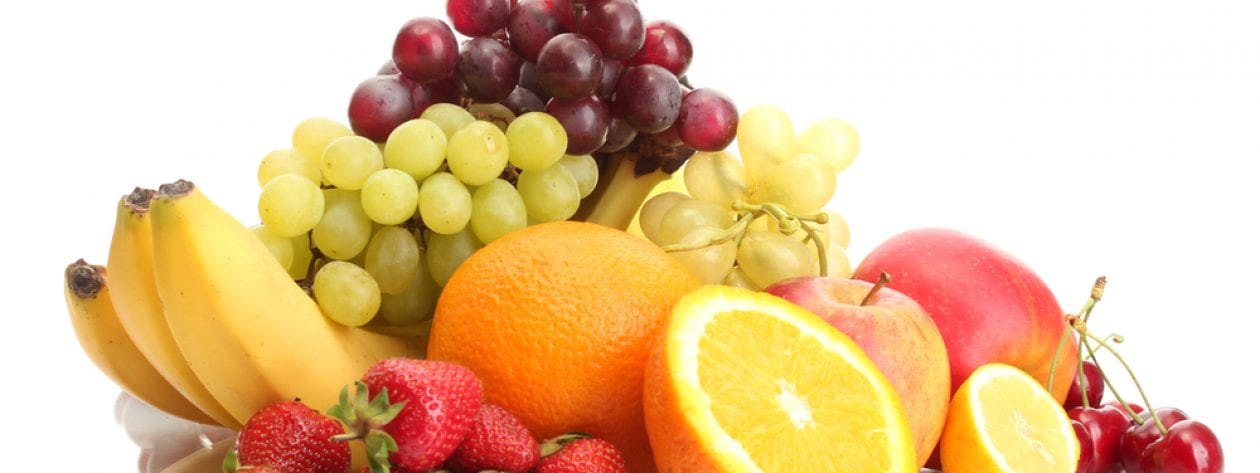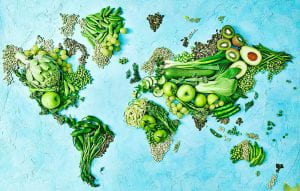Okay, so you may be wondering what it means to have a “sustainable diet”?
In the most basic sense, a sustainable diet is one which has a low environmental impact, and that contributes to food and nutritional security. Additionally, it aims to create and sustain healthy lives for present and future generations.
But, how can you do this while living on or off campus?
The answers are simpler than you may think!
1. Prioritize Plants:
USDA’s MyPlate suggests filling half your plate with vegetables and fruits as part of an optimal diet, but planning our meals around product benefits the planet as well. Shifting to a more plant-based way of eating will help reduce freshwater withdrawals and deforestation. Think of this as a win-win for both our personal health and the environment.
2. Minimize Meat
MyPlate suggests reducing red meat, and now there’s another reason to treat it more as a condiment than a main dish. Meat production is a substantial contributor to greenhouse gas emissions, especially beef production. Transporting and raising livestock also requires more food, water, land, and energy than plants. To eat for our own health as well as that of the planet, we should consider picking non-meat proteins such as nuts and legumes.
3. Select New Seafood
Fish can be a healthy choice if part of an overall healthy dietary style, but some species are at risk of being over fished, or produced in ways that harm the marine environment. If your go-to variety of fish is on the “avoid” list, consider trying some new seafood. The “Avoid’ and “Alternative” visual can be seen below.
| Seafood to limit | Alternative | Reason for Alternative |
| Atlantic Salmon | Pacific Salmon | · Similar flavor profile
· Remains rich in fatty acids · Requires less fish feed |
| Swordfish | Mahi Mahi | · Similar “meat” flavor
· Smaller and healthier |
| Wild-Caught Sea Scallops | Farmed Shellfish | · Harvesting in ocean disrupts natural habitat
· Farmed shellfish can be harvested sustainably |
| King Crab | Blue Crab or Stone Crab | · Typically come from well-managed fisheries in the US
· Seafood sourced close is more sustainable |
4. Look Local
Exploring farmers’ markets helps you find fresh produce grown locally, but equally important, you can meet the people who produce your food. During the academic year, there are many farmers’ markets that take in downtown State College. What could be better than walking downtown with some friends and finding some cheap fruits, vegetables, and locally -made baked goods? Keep in mind, many of these markets are cash only! Additionally, Penn State has its own student-run farm, which provides produce to many of the dining halls of campus, as well as a few businesses downtown. Keep an eye out for events in the dining commons featuring this produce! These are great opportunities for education: you can learn how your food was grown, when it was harvested, and event how to prepare it.
5. Eat Mindfully
One of the simplest things you can do to eat more sustainably is to practice mindful eating. Focusing o what you’re eating allows you to reflect on where your food came from and how it is nourishing your body. Additionally, by tuning in to your hunger signals you may learn that you don’t need as much food as you thought, and resize your meals accordingly. by paying more attention to how we eat and thinking about the “bigger picture”, we may alter our food consumption and reduce food waste, as well as become encouraged to seek out more sustainable food sources. These are no changes that need to be implemented all at once. Rather, one should take their time and make small, but impactful choices about what they are consuming.
So now that we know that sustainable eating is beneficial for so many reasons, how can you incorporate it into your diet?
Visit this link to learn more about what “sustainable eating” entails
By: Emmy Sikora















